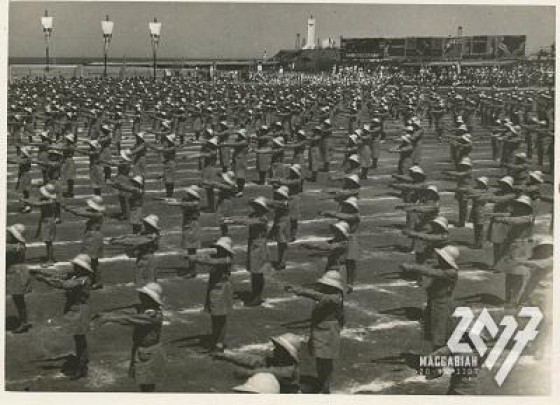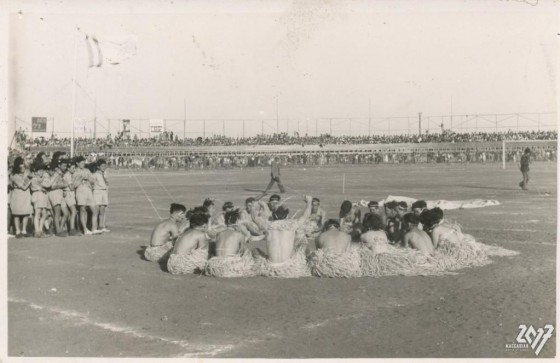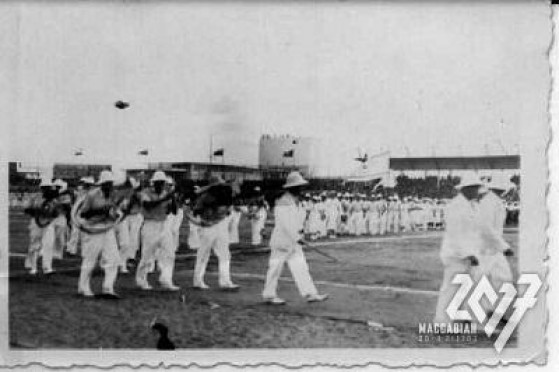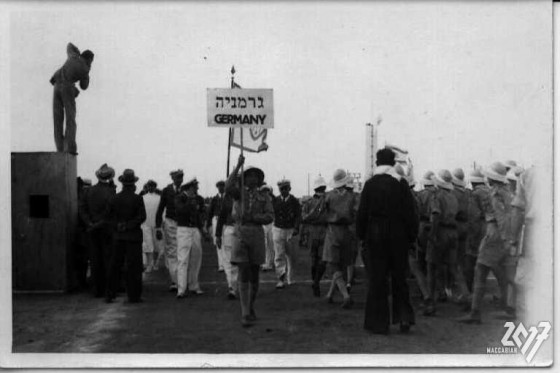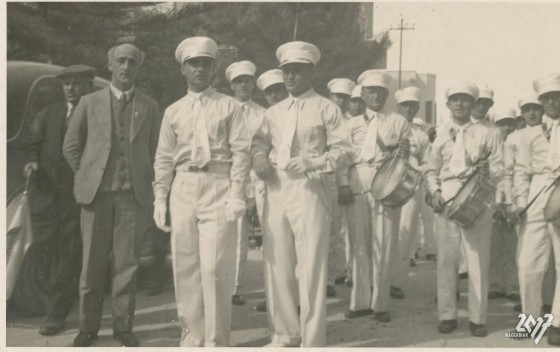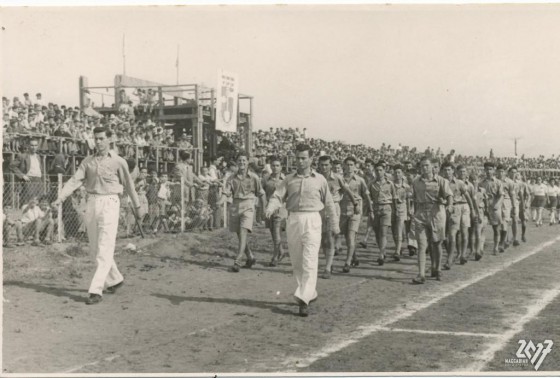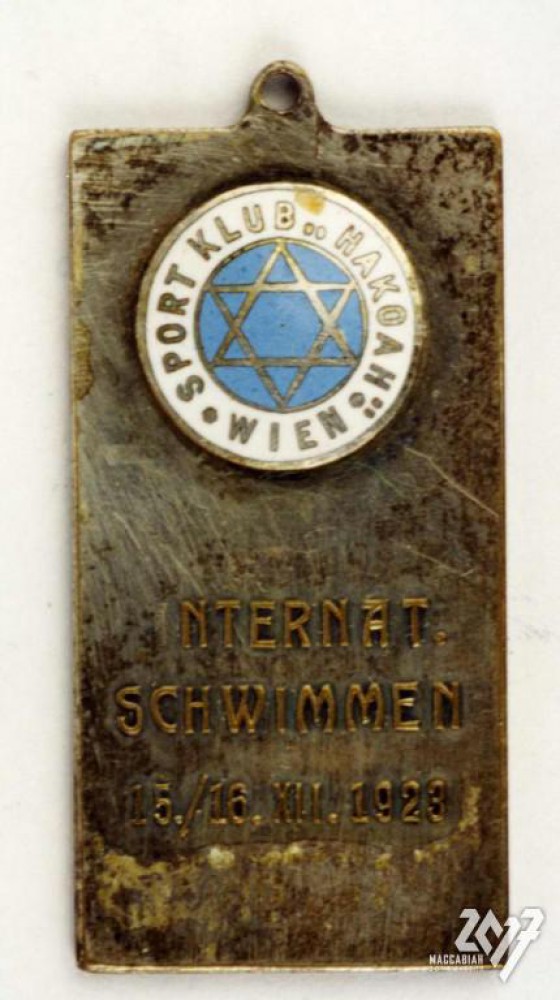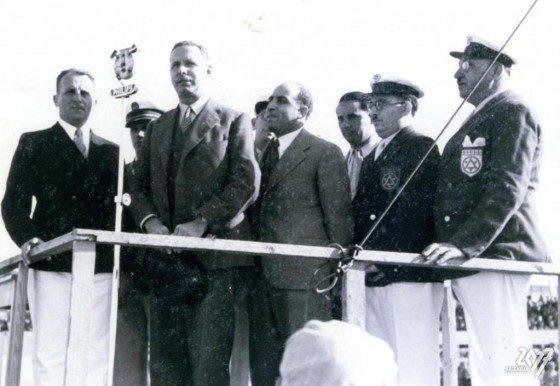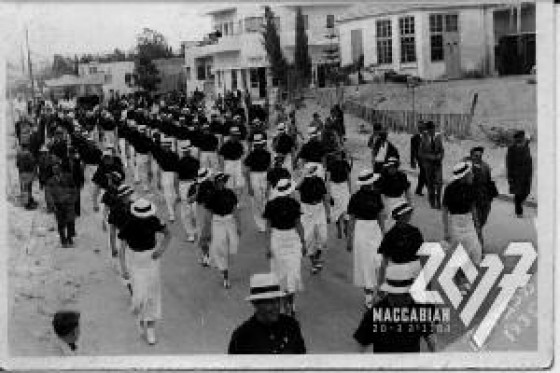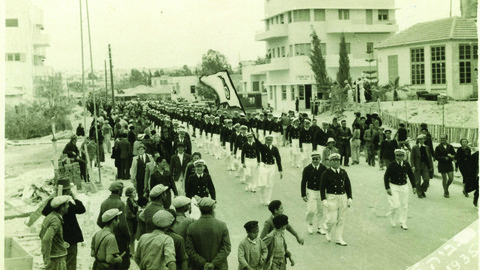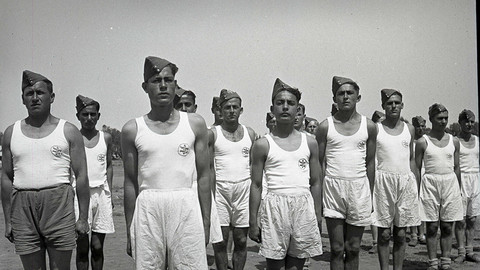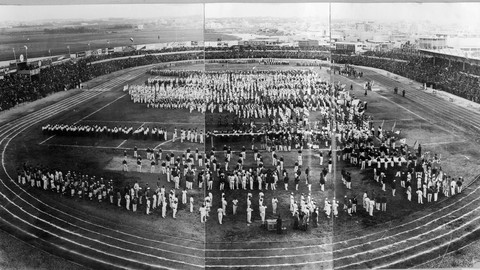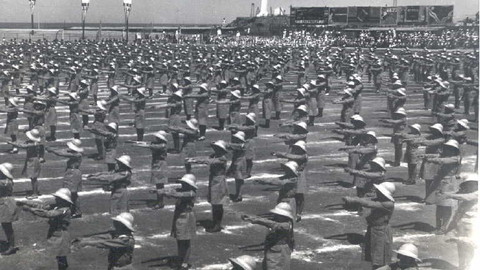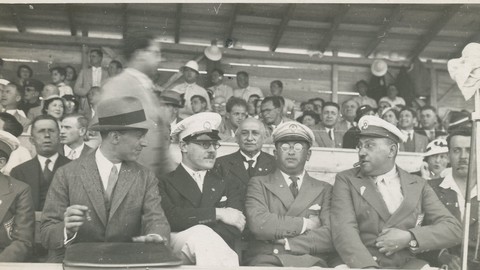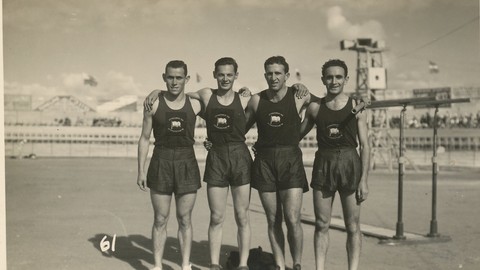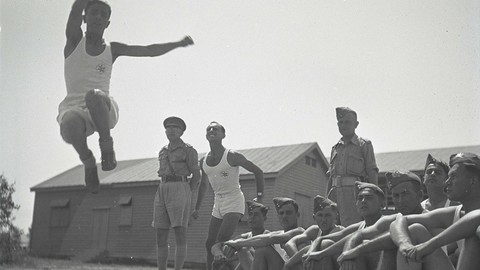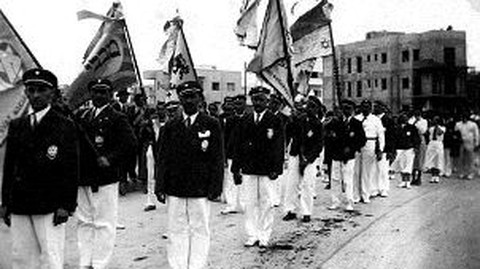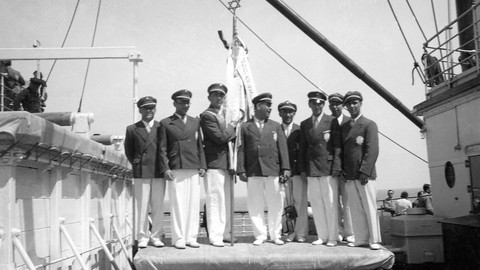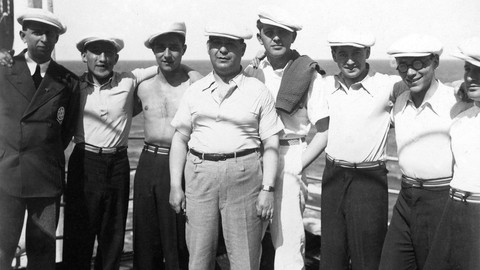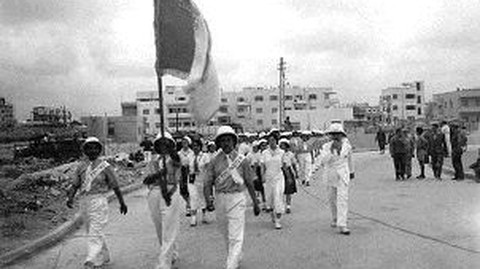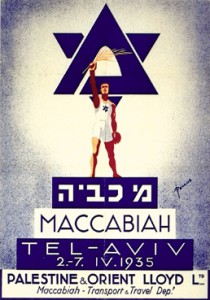
The Second Maccabiah: 5695
1,250 sportsmen and women from 28 countries participated in the Second Maccabiah, competing in 18 events. For the last time in many years, delegations arrived from Central and Eastern Europe -- Estonia, Danzig, Yugoslavia, Lithuania, Latvia, Poland, Czechoslovakia and Hungary -- and from Arab lands -- Morocco, Libya, Egypt and Syria. The Danzig delegation marched neither with the Polish nor the German delegations, so as not to declare allegiance to either state in the confrontation between them which stirred up the European continent at the time.
Delegations from Italy, Belgium, Holland, Turkey, France and South Africa arrived for the first time.
At the last moment, a sizable delegation from Germany surprised the Maccabiah organizers by announcing that they had received permission to join in the Games.
Hitler's rise to power in Germany (1933) had cast a heavy shadow over all Europe. The British continued to limit the number of certificates to Eretz Israel and many participants, from Bulgaria and Poland in particular, took advantage of the opportunity to remain. Even the Bulgarian band, which performed at the Opening and Closing Ceremonies, remained to the last man. When the flags were lowered from the masthead signifying the closing of the Maccabiah, the instruments were paced up and shipped back alone. In total only 61,000 Jews settled in Eretz Israel in that year.
The Second Maccabiah, like the First, was held in the spring. Many years later, the organizers decided to hold the games in the summer so that many students on vacation would be able to participate.
Whereas the First Maccabiah was organized in only three months, preparations for the Second stretched out over approximately one year, adding substantially to the cost. This Maccabiah was plagued by severe financial difficulties, ׂThe budget for Maccabi Israel barely covered the cost of stamps.׃ Under the circumstances, the organizers decided that World Maccabi would have to assume the financial burden, responsibility for running the Maccabiah remaining with Maccabi Eretz Israel.
The Federation Presidium organized a massive fundraising drive for the Maccabiah Foundation, opening Maccabiah offices in London, Alexandria, Berlin, Warsaw, Prague and Tel Aviv. A separate drive to build the Tel Aviv Stadium was launched in South Africa. This Maccabiah proved that it was possible to fill an empty money bag with national, educational and sportive values. By the way, tickets for the games could be purchased at the piano shop and in drug stores.
That year Eretz Israel enjoyed a relative economic boom. Tel Aviv grew and the main thoroughfares were paved. The stadium was also enlarged to add more room for spectators. Over the objections of the Mandate Police, the planners staged an impressive procession through the streets of Tel Aviv. Lord Melchett, Honorary President of the Maccabi World Union, reviewed the parade. The Second Maccabiah built the Jewish community in Eretz Israel its first swimming pool (50 meters long) in the Bat Galim neighborhood of Haifa. Swimming competitions continued to be held there until the Fourth Maccabiah in 1953. Yigal Caspi's composition was chosen from among 15 entries as the official Maccabiah anthem and sung at the Opening and Closing Ceremonies.
That year, many new, important competitions were added to the official list, among them: judo, cycling, weight lifting, rowing, volleyball and sharpshooting. Handball and basketball competitions were eliminated this time, only to reappear at the Third Maccabiah. Equestrian skills and motorcycling were permanently eliminated from the competitions.
Among the outstanding athletes were Lillian Copeland who won Gold Medals for the discus throw (37.38 meters), javelin throw (36.92 meters) and shot put (12.32 meters.) In the final scoring, Austria placed first with 399 points, followed by Germany (375.3 points) and Eretz Israel (360.5 points.)
The first two Maccabiot were held during the Mandate period and were known as the Aliya Maccabiot because hundreds of athletes decided to remain in Eretz Israel after the games had concluded. Both Maccabiot were much more than mere sports events. They were part of the total complex of the Zionist National Cultural endeavor, more than a decade before the establishment of the State.
Notable Athletes
- Lillian Copeland - who won Gold Medals for the discus throw (37.38 meters), javelin throw (36.92 meters) and shot put (12.32 meters.)
Joining the Party: Countries who participated for the first time
- Italy
- Belgium
- Holland
- Turkey
- France
- South Africa
Say Hello: New Sports Competition
- Judo
- Cycling
- Weight lifting
- Rowing
- Volleyball
- Sharpshooting
Saying Goodbye: Categories from Previous Maccabiot That Were Left Out
- Handball
- Basketball
- Equestrian skills
- Motorcycling


